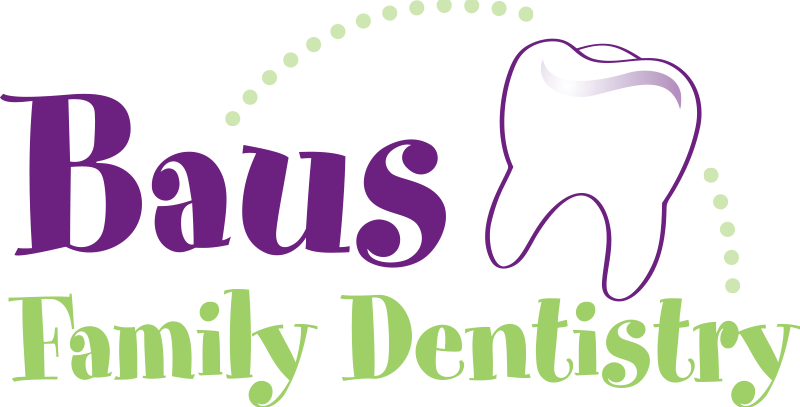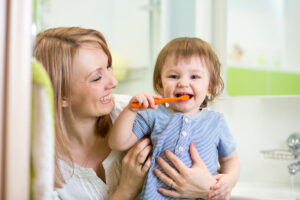Infant Care
Teething, and what to expect…
Lots of our parents wonder what to expect when their babies start teething. Usually newborns have no visible teeth. Some teeth may appear as early as six months after birth. During the first three years of life all 20 baby teeth will erupt. These primary teeth are important in normal development and hold space for the permanent teeth.
The four front teeth usually erupt first at 6 to 14 months. Around 14 to 19 months, the child's canines and 1st molars will erupt. Then finally between age 2 and 3 years old, the 2nd molars will erupt. As the child grows, their jaw will grow to make room for the future permanent teeth, which will erupt around age 6.
Some parents and other caregivers do not realize that a baby's teeth are susceptible to decay as soon as they appear in their mouth. Decay in infants and toddlers is sometimes called early childhood caries, and can destroy the teeth of an infant. This occurs when the child's teeth are exposed to sugary liquids for long periods of time. Sugary liquids can include: milk, breast milk, formula, fruit juice, and soda. But this is preventable!
Tips to help keep your infant's teeth clean and decay free:
- Never allow your baby to fall asleep with a bottle that has milk, formula or juice, and don't dip their pacifier in sugar or honey.
- Begin oral care early! Wipe the baby's gums with a wet washcloth after each feeding. Begin to brush their teeth with a little water and toothbrush as soon as the first tooth appears.
- Always help brush and floss a child's teeth until they can do a proper job by themselves.
- Share information about good oral hygiene with other caregivers of your children.
- Set a good example by cleaning your teeth twice a day.
- Schedule a child's first check-up by their first birthday.




